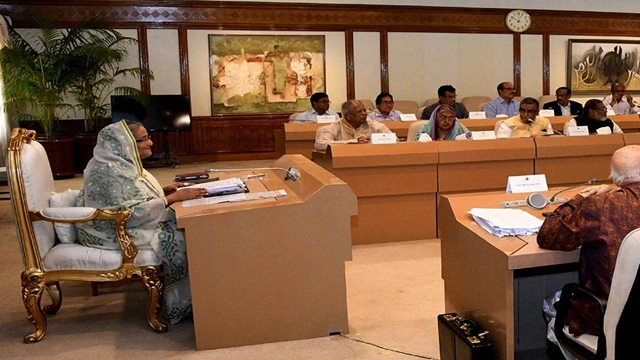SAM
Published:2018-05-29 17:57:54 BdST
Draft of BSTI act suggests tougher punishment
FT oNLINE
The draft of Bangladesh Standard and Testing Institution (BSTI) Act, 2018 has suggested tougher provisions against violation of standard and testing rules.
The cabinet approved the draft in the weekly meeting of the cabinet on Monday. The meeting was held at Prime Minister’s Office with Prime Minister Sheikh Hasina in the chair.
Cabinet Secretary Md Shafiul Alam briefed the reporters at the Secretariat after the meeting. He said the new act will replace the Bangladesh Standard and Testing Institution Ordinance, 1985.
The draft of the new law has been framed without any major change in the previous ordinance except the amendment to the provisions of punishment, he said.
The new law suggested two years imprisonment and minimum penalty of Taka 25,000 and maximum Taka 100,000 instead of previous provision of six-month imprisonment and fine of Taka 15,000 for use of standard marks without license.
The draft also suggested for confiscating the goods used without registration.
For violation of any provision of the export license, the draft proposed for one year imprisonment and minimum penalty of Taka 10,000 and maximum Taka 50,000 instead of previous provision of only one-year imprisonment.
As per the law, the government would have power to prohibit sale, distribution and advertisement of goods in consultation with the BSTI and gazette notification.
The draft law also proposed four-year imprisonment and penalty of minimum Taka 50,000 and maximum Taka 200,000 instead of four-year imprisonment and minimum fine of Taka 7,000 and maximum 100,000 for violation of the government gazette regarding sale, distribution, commercial advertisement of the goods.
The law has kept the provision of a common clause under which a person can be prosecuted for any offense under the law, but punishment of the offence is not specifically mentioned in the law.
In that case, a person would be fined minimum Taka 25,000 and maximum Taka 100,000.
For committing same offence by a person for second time, the law proposed double imprisonment and penalty, the cabinet secretary said, adding that an aggrieved person can appeal to the government against any punishment within three months or time specified by the government.
The cabinet also approved the National Jute Policy-2018 through revising the previous policy, which was framed in 2011.
The Cabinet Secretary said the vision and mission of the new jute policy are: strengthening the jute sector to compete with local and global markets, increasing productivity, creating employment opportunity and producing environment-friendly jute though investment.
The policy has given strategic priority on five things – producing quality jute, ensuring fair price of jute, diversification of jute, modernisation of jute mills and expansion of jute market, Shafiul Alam said.
Unauthorized use or reproduction of The Finance Today content for commercial purposes is strictly prohibited.


